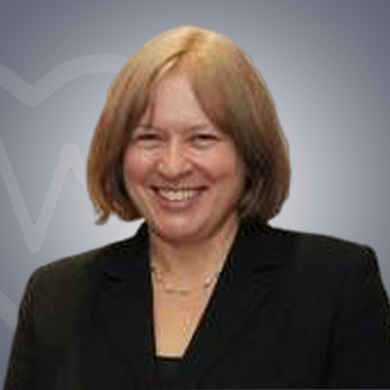
30 Years of experience
Speaks: English
A medical oncologist treats different types of cancer using different techniques like hormone therapy, chemotherapy, targeted therapy, or immunotherapy. A medical oncologist works with other specialists to design a treatment plan according to the type and nature of cancer, age of the patient, stage of cancer. They discuss cancer diagnosis with you, including the stage and type you have. They also assist you to manage the cancer symptoms as well as treatment side effects. Some of the conditions Dr. Ruth Pettengell treats are:
The earlier doctors detect cancer, the sooner the treatment can start. So it is vital to know the common types of cancer and some of their warning signs. There are more than 90 types of cancer, and some of them are more common than others. This depends on your gender, age, and racial or ethnic group. Some of the common symptoms of cancer are listed below. If you have any of these symptoms, consult a medical oncologist.:
If you want to see Dr Ruth Pettengell, you can visit his clinic or associated hospital between 11 am and 5 pm from Monday to Saturday. You can connect with the doctor or his attendant to confirm his/her availability because the doctor may not be available in the given time due to some personal reasons or any emergencies.
Some of the popular procedures that Dr Ruth Pettengell performs are:
Chemotherapy is a common procedure for the treatment of a certain type of cancer. It involves the use of chemicals to kill growing cancer cells in the body. Chemotherapy medications can be used alone or combined with other drugs to treat a variety of cancers. Hormone therapy is a procedure that uses medicines to stop or lower the amount of hormones used by cancer cells to grow. Hormone therapy is used for the treatment of breast cancer, prostate cancer, ovarian cancer, and womb cancer.

Share Your Experience about Dr. Ruth Pettengell

A medical oncologist is a doctor who is responsible for the diagnosis and treatment of cancer through various techniques like chemotherapy, hormone therapy, targeted therapy, and immunotherapy. They coordinate with other doctors to design a treatment plan that is suitable for you. They help patients manage their cancer symptoms. If a medical oncologist finds that cancer cannot be treated, they recommend hospice or palliative care for the patients. A medical oncologist is mainly involved to manage cancer.
The tests that help medical oncologists diagnose cancer are listed below:
Biopsy is the most preferred test to confirm cancer. It is the removal of a small amount of tissue from specific parts of your body followed by examination under a microscope to find the presence of cancer or any other abnormalities.
A person may be referred to a medical oncologist when the primary case doctor thinks that the person shows cancer symptoms. The medical oncologist evaluates the condition of the patient and examines to confirm cancer. You need to see a medical oncologist if you experience the symptoms listed below: